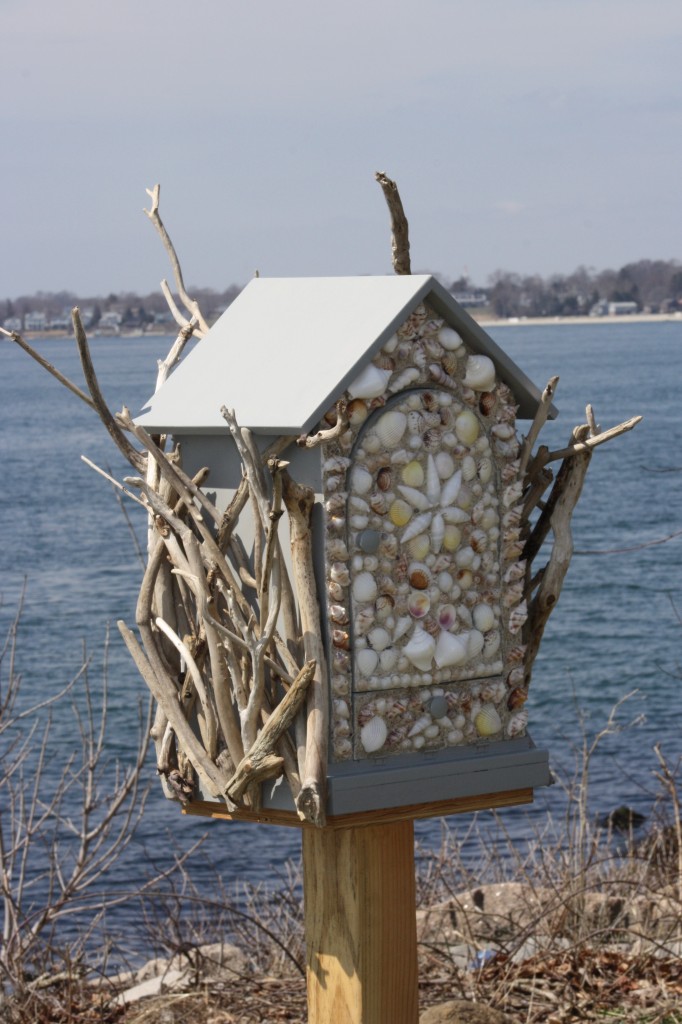[col grid=”2-1 first”]
[/col]
[col grid=”2-1″]
A Human Error
by Nancy Willard
All alone on the sand it stood.
A moon snail, big as a peach,
shining as if the sea lit it
to give the drowned a decent burial.
I admired its chalky armor, a house
for an anchorite polisted with prayers,
or a slim girl tucked into a tower.
When the firest wave covered it,
I thought of the tide, of moon snails broken
and tossed aside. I thought
of their corridors without footfalls,
of their turrets without pennants
cracked open to shadowns and voices.
I thought of the morning light opening
and closing, and the stars rising.
I watched the sea place ist beautiful coffing
on the dark page of the sand.
When the waves pulled back,
I sprang forward. I grabbed the moon snail.
The dark mushroom of its body
spilled into my hand like a velvet sleeve.
Its frilly flesh grasped mine. I threw it down.
Safe now, It tried to refold itself.
Uncrinkling its pleats, disordered by fear,
it sank, disheveled and blind, into dand,
as if through a trapdoor on a bare stage.
Does the taint of my hand haunt it?
Does its muschel remember me? Baffled
by light, by sweat, by a shape not its own,
does it go on smoothing itself like laundry
washing me out of its simple body?
[/col]
Poetry box by Susan Schultz, born in Springfield, Illinois, she received a B.F.A. from the College of the Dayton Art Institute. She lives and works in Stonington, Connecticut and Westport, Massachusetts, small coastal towns. Her daily walks, and what she collects along the shoreline influence her work.
She is the past recipient of a University of Rhode Island Visual Arts Sea Grant and a Connecticut Commission on the Arts Individual Artist Fellowship. She has participated in artist residencies in the US, France, and Italy. Recent solo exhibitions include the Ogunquit Museum of Art, and the University of Connecticut.
Susan’s current work relates to the ocean and the environment. She visited European and eastern U.S. beaches and collected natural and man-made objects. She transformed these objects, using porcelain, into three dimensional still lives, specific to a time and place.
Poem by Nancy Willard an award-winning, versatile author of dozens of volumes of children’s fiction and poetry, as well as novels, poetry, short stories, and literary criticism for adults. The first recipient of a Newbery Medal for a volume of poetry, Willard mingles the “magical and the mundane” in a technique that “requires a leap of faith on the part of the reader,” according to Sybil Steinberg in a Publishers Weekly interview with the author. As E. Charles Vousden and Laura Ingram pointed out in their Dictionary of Literary Biography entry: “Everything [Willard] writes affirms her belief in the ‘magic view of life;’ that is, a view of life that incorporates the imagination and stresses the appropriateness of things meant to be taken metaphorically.” She recently retired from Vassar College, where she was professor then lecturer, so she could focus more on her writing.